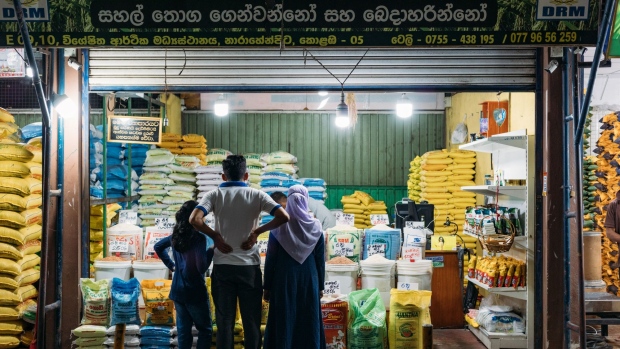Jan 22, 2023
Sri Lanka Says China Willing to Back Debt Restructuring Plan
, Bloomberg News

(Bloomberg) -- Sign up for the New Economy Daily newsletter, follow us @economics and subscribe to our podcast.
China has indicated that it is willing to support the debt recast plan for Sri Lanka, a move that will bring the nation closer to the $2.9 billion loan from the International Monetary Fund.
“We are on track for the requirements of the IMF,” State Minister of Finance Shehan Semasinghe said in a telephone interview Sunday. Sri Lanks will reach out to the Washington-based lender to affirm whether the assurances are enough to set in motion the bailout program, he said.
China’s assurance comes days after India told the multilateral lender that it will back Sri Lanka’s debt restructuring plans. President Ranil Wickremesinghe held a virtual meeting with Exim Bank’s chief earlier this month, while a delegation from China also visited the nation through Jan. 18. Sri Lanka also concluded debt restructuring talks with Japan last week.
Sri Lanka was aiming for board approval from the IMF in the first quarter of 2023. The funds will help the nation mend an economy that has fallen deeper into recession amid sky-high inflation and elevated borrowing costs, and pave the way for further assistance.
“I am confident that the Paris Club would also give its backing,” Semasinghe said. The Paris Club, an informal group of mostly rich, western bilateral creditors, was waiting for China to commit to the debt overhaul before notifying the IMF. Sri Lanka has about $50 billion in foreign currency debt, of which about $10 billion is mainly split between China, Japan and India, according to government data as of December.
Since Sri Lanka defaulted in May, creditors have been going back and forth on the size of losses they are willing to accept and whether local debt should be included in the restructuring.
In a bid to expedite negotiations, Sri Lanka’s government is said to have considered including a special clause in its debt restructuring proposal to assuage doubts among other creditor nations that China — which holds 52% of the nation’s bilateral debt — could be offered better terms. Private creditors own almost 40% of the country’s overall external debt.
--With assistance from Asantha Sirimanne.
©2023 Bloomberg L.P.







